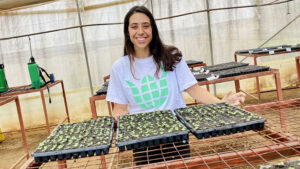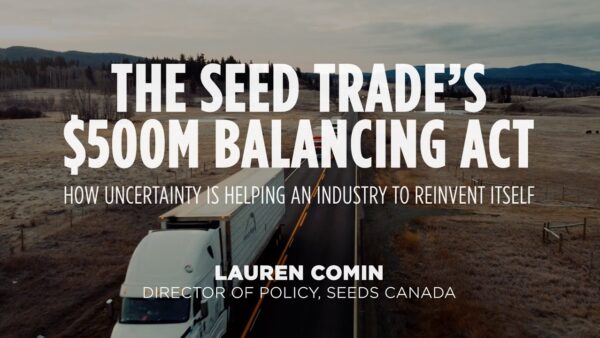The Common Agricultural Policy (CAP) became a major pillar under the European cooperation after the Union for Coal and Steel ventured into a wider economic agenda from 1957 onwards. Food security, combined with reasonable food prices and a fair standard of living for farmers were among its major goals. The CAP was so successful that already in 1984 quota systems were needed to avoid butter mountains and wine lakes. Since then, food security has dropped from the European agenda completely. Food is abundant and cheap, the quality of diets in terms of protein intake soared and obesity became a bigger issue than malnutrition.
Europe seemed an island; in the midst of the growing surpluses, the first Global Food Conference was held in 1973, ringing the bells about food crises soaring all over the world. Regions, severity and causes changed over time. Bangladesh and India in the 1960s — the Sahel region, Myanmar and parts of Central America and China in the ’70s and ’80s and war-torn Biafra, Horn of Africa, Central Africa, Sudan, Yemen and… throughout recent history. Acute food insecurity is on the increase again according to the 2022 World Food Programme reports.

In Europe, agricultural policies changed from stimulating production to supporting farmers’ income in a world where free trade was the philosophy and European farmers were increasingly faced with world market commodity prices. Partly because of that dependency on subsidies, farming became less and less interesting for the young generation, except for well-educated young entrepreneurs who can manage increasingly mechanized, digitized, and externally financed farms that can only survive at increasing economies of scale. A growing part of urban society, on the other hand, maintains another vision — food based on hard manual work on small scale farms — and some are willing to pay extra for products from such farms. This, combined with the number and complexity of financial and other rules that farmers are faced with, now adds to a broader gap between urban and rural views. And problems for governments to deal with it, recently leading to massive changes in election outcomes in The Netherlands.
European policies have turned from production and income support to sustainability, and above all the Planet component of the three P’s (People, Planet, Profit). There are very good reasons to give some serious thoughts about the environment. The seed sector will also be affected, but above all, we are part of the solution!! With our breeding and seed technology. Our main limitation may be time; however, agricultural policy changes go faster than our science-based evolution can keep up with, and sometimes policies block opportunities for us to go faster.
This race towards increased sustainability is likely to create some serious friction with respect to food security. A free lunch is hardly ever free. Too many restrictions to farming will create problems with productivity. Now that the term ‘strategic autonomy’ is on the table in the frame of geopolitical developments, it is amazing that food doesn’t seem to rank high on the strategic priority list. Where the EU looks at re-opening mines for rare minerals in Europe and export bans of high-tech products to an increasing number of countries, little analysis is made of the impact of EU agricultural policies on food security in Europe. The only concern seems to be whether there are enough stocks for short-term shocks, but there is no mention of the effect of a long-term reduction of yield per hectare as a result of the proposals. Europe does export food at the moment, but at the same time imports shiploads of soybeans and maize and a wide variety of other products. When food production in Europe goes down as a result of stringent sustainability rules, food production elsewhere, with bigger climate and biodiversity footprints will have to go up or food prices will be permanently higher, such as currently faced in Africa as a result of the Russian invasion of Ukraine.
Food security relates both to food availability (production, storage, distribution) and to food prices. Of course, these two are interlinked — the currently soaring food prices hike (18 per cent in 2022 on average in Member States) creates a big question with respect to the phrase ‘leaving nobody behind’ in the Green Deal. An increasing number of EU citizens already struggle to make ends meet. An ‘Arab Spring’ may be far off in Europe, but food prices have been a major cause for civil unrest throughout history.
Food security is a complex but very basic concept for society. It clearly does not only relate to production and product qualities, components that we can support through our seeds; it also strongly relates to trade policies and realities, to consumption patterns and to income distribution. Food security should therefore not be left to DG Agri, but to a much wider policy arena. An EU Commission staff document on the “drivers of food security” looked, despite its flaws, like a good start to put the issue on different tables, but it appears to create at best only tiny ripples in the pond of European policy makers.
View the flipbook here.
More Articles From Volume 10 Issue 2:
How One NGO is Lifting Farmers Out of Poverty
The IBMA Shares Its Take On The Green Deal, SUR And The Benefits Of Biocontrol











